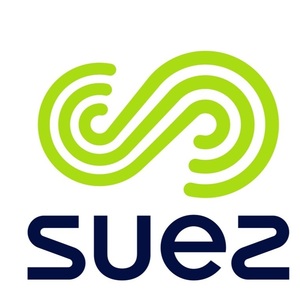Spotlight: SUEZ Water Technologies & Solutions. CIP Solutions and Customer Relationships

June 9, 2022
BY Katie Schroeder
SUEZ Water Technologies & Solutions has been serving customers since 1925 helping them solve water, wastewater and process challenges. Operating in 130 countries across the globe, the company provides chemical, monitoring, equipment and service solutions to a variety of industries, from food and beverage to utilities and chemical processing. According to senior researcher Mike Raab, SUEZ Water Technologies & Solutions offers the ethanol industry three key services: deposit control, cleaning and corn oil extraction.
Ethanol producers often deal with deposit issues throughout their process stream, frequently collecting on heat transfer area surfaces and lowering efficiency. Raab explains that identification of the deposit is a vital first step to helping producers mitigate this issue. “We have a holistic way of approaching that,” he says. “We do a lot of work around analyzing those deposits for our customers because they can take on various forms chemically and the way that you approach them is going to be significantly different depending on what type of deposit they are.” The company uses a world-class laboratory to analyze and categorize the deposit, then the technology experts tailor the chemistry to remove those specific deposits.
The CIP solutions offered are animal feed approved, which is important for the ethanol industry, Raab explains. The company’s FoodPro* line of cleaners offered to the ethanol industry are only made of chemistries which are GRAS (generally recognized as safe) for use in animal feed. “It’s something that a lot of people don’t realize, but actually animal food products are more limited than human food … because they don’t have a varied diet like humans do, they are fed the same thing almost all the time,” Raab explains. “It makes it somewhat of a tricky process, but one of the things that we’ve gotten pretty good at is working with the things that are approved and available to come up with something that works over a broad range of conditions to help those customers with those applications.”
“The way that we think about what we do is that when our customers win, we win,” says Raab. Their engagement with customers is what makes SUEZ Water Technologies & Solutions stand out. He explains that their team knows each customer's process inside and out, problem spots and all. The strong customer relationships they have built allow them to make recommendations and provide guidance to address issues. “We’re directly impacting the products that they make, so we’re trying to help them run more efficiently, and improve the output of their process,” Raab says.
*Trademark of SUEZ; may be registered in one or more countries.
Advertisement
Advertisement
Related Stories
The U.S. Energy Information Administration maintained its forecast for 2025 and 2026 biodiesel, renewable diesel and sustainable aviation fuel (SAF) production in its latest Short-Term Energy Outlook, released July 8.
XCF Global Inc. on July 10 shared its strategic plan to invest close to $1 billion in developing a network of SAF production facilities, expanding its U.S. footprint, and advancing its international growth strategy.
U.S. fuel ethanol capacity fell slightly in April, while biodiesel and renewable diesel capacity held steady, according to data released by the U.S. EIA on June 30. Feedstock consumption was down when compared to the previous month.
XCF Global Inc. on July 8 provided a production update on its flagship New Rise Reno facility, underscoring that the plant has successfully produced SAF, renewable diesel, and renewable naphtha during its initial ramp-up.
The USDA’s Risk Management Agency is implementing multiple changes to the Camelina pilot insurance program for the 2026 and succeeding crop years. The changes will expand coverage options and provide greater flexibility for producers.
Upcoming Events










